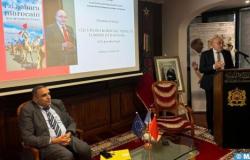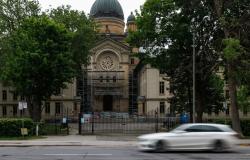In the face of ecological tumults, gold sparkles with a new brilliance, like an unexpected bet on the future of our planet. What truths lie behind his aura ofethical investment ?
Ecological impact of gold mining and current perception
The gold miningthis precious metal which, for millennia, has symbolized wealth and power, turns out to be an activity with notable environmental consequences. Far from the shiny shine of jewelry stores, extraction sites in Africa reveal a much darker reality. The lack of government supervision and the absence of environmental impact studies prior to mining projects are all flaws that carve a deep furrow in the ecological fabric.
Neglected impacts
Here are some of the overlooked impacts:
- Gold mining causes damage to the local biodiversityaffecting both fauna and flora.
- The massive use of chemicals like cyanide threatens waterways and, by extension, surrounding communities.
- Uncontrolled mining discharges contribute to lasting soil pollution.
This bleak picture is, however, confronted with a paradox: that of a metal used rather than consumed. Gold does not deteriorate over time, and its recycling offers a promising alternative to limit the impact of its initial exploitation. CO emissions2mainly from the extraction process, remain relatively limited compared to those generated by other industries. Furthermore, unlike fiat money whose production has almost no marginal cost but has considerable ecological and economic repercussions, gold ultimately appears to be a potentially virtuous vector within financial portfolios.
Ethics at the heart of investments
In this quest towards more responsible investment, it becomes crucial for economic actors and individuals to favor a ethical gold. Encouraging the recycling of gold metal offers a concrete response to the problems raised by its primary extraction. Thus, by adopting a conscious approach when buying or selling gold at Gold.fr, each individual participates at their own level in promoting an industry that is less damaging to our planet.
However, it is imperative that this awareness extends beyond the simple choice between new or recycled gold. It is also necessary to carefully examine the conditions in which it was recovered. The question of decent work must remain relevant so that the term “recycling” does not mask abusive practices such as child labor or the inhumane exploitation of workers in certain regions of the world.
Thus all the complexity surrounding gold extraction emerges: between economic necessity and major environmental challenges. A dilemma which continues today to fuel many reflections on our global development model.
Ethical investment: criteria and integration of gold
Ethical investment is taking on a new aura as ESG (Environmental, Social and Governance) criteria take hold in the financial world. Gold, an ancestral metal, finds its place with surprising ease, revealing its potential as a durable asset. Faced with current climate challenges, this centuries-old investment becomes an unexpected ally in the fight to preserve our environment.
ESG criteria and gold
Investments are now scrutinized through the prism of ESG criteria which include:
- The environmental dimension: where we consider the impact of activities linked to the extraction and recycling of gold on our ecosystem;
- The social aspect: which takes into account the working conditions of minors as well as respect for fundamental human rights;
- Corporate governance: focused on the transparency of managerial practices and the fight against corruption.
This triptych today guides capital allocation decisions towards assets deemed responsible and beneficial for a sustainable future. Thus, far from being confined to a traditional role as a financial or ornamental instrument, gold is gradually being integrated into ethical investment strategies.
The virtuous integration of gold
Significantly for investors concerned about the future of our planet, the purchase of gold is no longer limited to a simple financial transaction. It now represents a tangible contribution to sustainable development, thanks to:
- support for certified mines that meet strict decent work standards;
- efforts to minimize negative environmental impacts through precious metal recycling;
- initiatives encouraging cleaner extraction without the use of toxic substances such as mercury or cyanide.
This sectoral change is palpable among consumers who now favor thoughtful and conscious purchases. Indeed, opting for Fairmined or recycled gold not only contributes to enhancing financial assets but also ecological assets. This is the quintessence of an ethical investment where each gram acquired reinforces this virtuous dynamic.
While it is true that the road to a fully responsible gold industry is still long and fraught with pitfalls, every action counts. Investing in this precious metal while scrupulously ensuring compliance with ESG directives constitutes a significant step towards a future where finance rhymes with ecological awareness. This is how the modern face of a sector that was once controversial but which now aspires to embody a certain form of environmental and social exemplarity is gradually taking shape.
Role of gold in ecological transition and sustainable development
Let us now address the unknown role gold in the ecological transition and sustainable development. While some may see this precious metal solely as a symbol of prosperity, it is actually a key player in our march towards a greener future.
A metal at the heart of green technologies
Gold, through its exceptional properties, contributes significantly to the advancement of eco-responsible technologies. Here's how:
- It is essential in the manufacturing of components for photovoltaic solar panels, thus participating in clean energy production.
- Its use in electric vehicles, particularly for reliable and durable electrical connections, supports sustainable mobility.
- The energy efficiency of electronic devices is improved due to its superior conductivity.
This strategic presence of gold in innovative sectors demonstrates that it is not only a financial investment but also a technological one. Its active participation in the reduction of greenhouse gases is undeniable when its complete life cycle is taken into consideration.
Responsible investment and the impact on local development
Furthermore, investing in gold can be synonymous with a strong commitment to social development. By conscientiously choosing responsible sources of supply or favoring recycled gold, investors promote a circular economy that is beneficial both for the environment and for local communities:
- The valorization of human work through respect for international standards of fair work.
- Support for mining communities who adopt practices that are more respectful of their immediate natural environment.
- Assistance in financing local initiatives aimed at restoring and preserving ecosystems affected by previous mining activities.
Thus, far from being a relic of the past or a simple safe haven in times of economic uncertainty, gold is proving to be a potential vector of positive change. Its inclusion in a portfolio is not only a financial decision but also a conscious action towards a more sustainable future.
In conclusion, as we navigate towards horizons where sustainability becomes imperative, it appears that gold can play a leading role. It fits relevantly and effectively into global efforts to reduce our carbon footprint and support social progress. Thus observed from this innovative angle, this ancestral metal takes on an unexpected dimension: that of a catalyst of future planetary well-being.
Back






